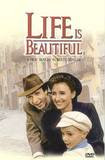And so, a small reminder for myself:
 |
| Say what you see. |
And sometimes, only that.
I’m finding since that this micro-mantra, this ‘Say what you see’ is applicable in nearly any scenario – in offering (and receiving) feedback, in sharing compliments, in encouraging another. Just last month I scrawled a list of helpful things I witnessed Markus doing – for us, for others – and tucked it into a Valentine taped to the garage door. There it was in black and white: every little thing from toothbrushing to trash duty. He felt appreciated. He felt seen.
I’ve been practicing the art all around town – from noticing my hairdresser’s new cheek color (sidenote: it was pink and it looked incredible) to offering a hand to the grandfather in the grocery store.
Sure, we can say what we think. We can say what we know to be true, and why. We can spend our days lecturing, defending our convictions to others, attempting to talk everyone else into understanding things precisely the way we understand them.
But sometimes, often times, we need only say what we see.
And to listen – carefully, intently – to what we don’t.


















